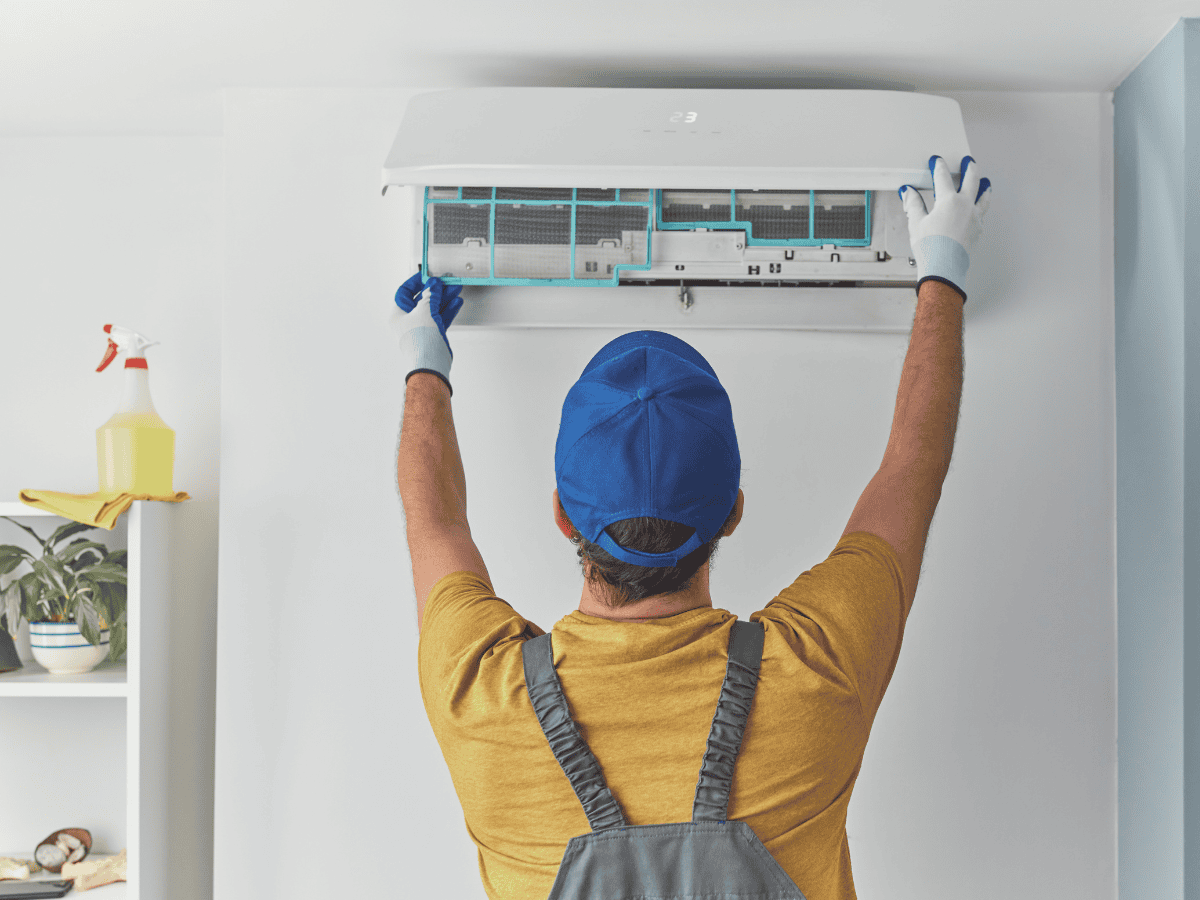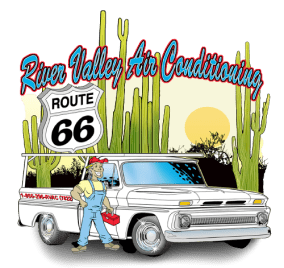When your air conditioner stops working, it can quickly turn your home into a hot, sticky nightmare—especially during those blazing summer days. If your AC isn’t cooling properly, or worse, won’t turn on at all, you’re likely asking: Why is my AC not working?
We get it—it’s frustrating. That’s why we’ve put together a guide to the 10 most common causes of your AC not working and what you can do about it. From simple fixes to knowing when it’s time to call in an HVAC professional, we’ve got your back.
Let’s dive in!
1. Thermostat Settings Are Incorrect
Sometimes, the simplest answer is the one that’s easiest to overlook. If your AC isn’t cooling your home, take a quick look at your thermostat. Is it set to “cold air” mode? Are the temperature settings too high? You’d be surprised how often these minor adjustments are the culprit behind an AC that’s not cooling properly. Check and adjust the thermostat, and if that doesn’t do the trick, keep reading.
2. Dirty Air Filter
If your air filter hasn’t been changed in a while, it could be the reason your AC isn’t working as efficiently as it should. A clogged air filter minimizes airflow, which can force your system to work harder and sometimes even freeze up.
We suggest checking your air filter regularly and replacing it every 1 to 3 months. Keeping the filter clean can not only improve performance but also extend the life of your AC unit.
3. Tripped Circuit Breaker
If your AC suddenly stops working, it might be due to a tripped circuit breaker. A circuit breaker protects your AC unit from electrical issues by automatically shutting off the power when there’s an overload. Check your home’s electrical panel and reset the breaker if necessary. If your AC keeps shutting off repeatedly, it may be due to more serious issues, such as faulty components or thermostat problems.
4. Low Refrigerant Levels
If your air conditioner is blowing warm air instead of cool air, there might be an issue with your refrigerant. Low refrigerant levels often indicate that there’s a leak in the system. If you suspect this, it’s best to call a professional technician for AC repair who can diagnose and fix the issue. Low refrigerant can cause your AC to work harder, potentially leading to more extensive damage if left unchecked.
5. Frozen Coils
Frozen evaporator coils are another common reason your AC might not be cooling effectively. When airflow is restricted, moisture builds up and causes ice to form on the coils. This can happen if the air filter is dirty or if the refrigerant is low.
If you see ice on your AC unit, turn off the system and let it thaw before attempting any further troubleshooting. Once you get water out of your AC unit safely, check for airflow blockages and make sure the refrigerant levels are adequate.
6. Clogged Drain Line
AC units remove moisture from the air as they operate, and this moisture is usually drained out of the system. Over time, your condensate drain line can become clogged with dirt, mold, or algae.
When this happens, the AC can’t drain properly, which may cause the system to freeze or stop working. In some cases, you may also notice a musty or damp odor in your home. If that’s the case, knowing how to get rid of a mildew smell from your AC can help restore clean, fresh airflow.
Regularly clean your drain line to prevent this issue. If it’s clogged, you can use a wet/dry vacuum to clear it out, or you may need to call in a technician for help.
7. Obstructed Outdoor Unit
Your AC’s outdoor unit is crucial to the cooling process. If there is a buildup, such as leaves, dirt, or even twigs, blocking the airflow to the outside unit, your system won’t be able to cool properly. Ensure the area around the outdoor unit is clear, allowing for proper airflow to keep your system running smoothly. Regular tune-ups can prevent this issue from happening.
8. Broken Compressor
The compressor is the heart of your AC system. If it fails, your AC unit won’t be able to cool your home at all. A broken compressor is a serious issue that requires professional attention. If your system is making strange noises or has stopped cooling altogether, it might be time to call in a technician to inspect the compressor.
9. Fan Problems
If your AC unit is operating but not cooling, the issue could be with the blower or the AC fan. A malfunctioning fan motor can prevent cool air from being distributed throughout your home. In some cases, the fan blades may be dirty or worn out. If you notice any strange sounds or irregular airflow, it’s time to get your fan checked by a professional.
10. Old or Inefficient AC System
Finally, if your AC unit is over 10 to 15 years old, it may be time for an upgrade. Older systems generally have lower efficiency and are more susceptible to recurring AC problems.
If your system is frequently in need of repairs and is no longer cooling your home as efficiently as before, it might be time to upgrade to a more energy-efficient model. If you’re still within the terms of your warranty or maintenance plan, it may be worth checking with your provider about replacement options.
When to Call a Professional HVAC Technician
No one wants to deal with a malfunctioning AC, especially when the summer heat is at its peak. By understanding the common issues and causes of AC failure and performing some basic troubleshooting, you can get your system up and running without stress.
However, if your AC is still not working after trying the fixes above, don’t hesitate to reach out to River Valley Air Conditioning. We proudly serve homes and businesses across our extensive service areas, ensuring fast, reliable cooling solutions when you need them most.
Need help with your AC? Call us anytime at River Valley Air Conditioning for professional and reliable service. Let us take the heat off your shoulders!


